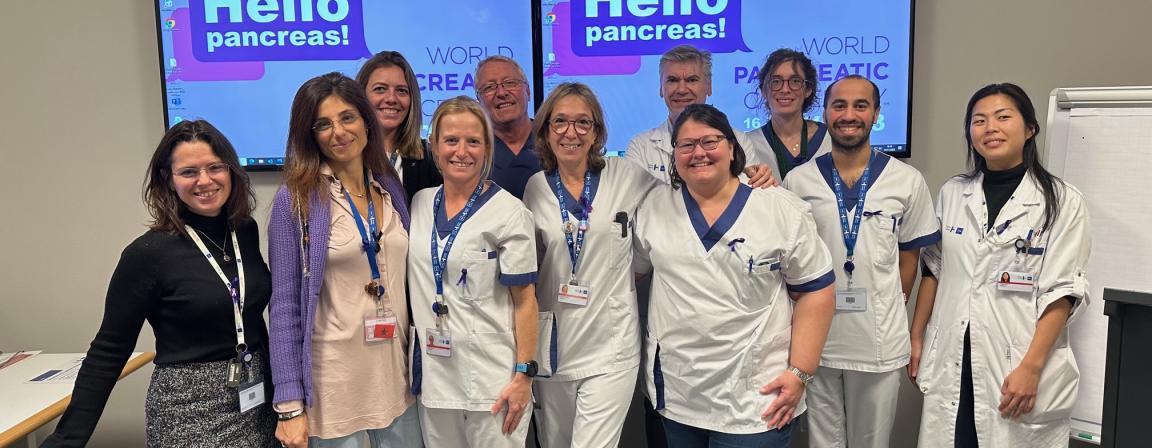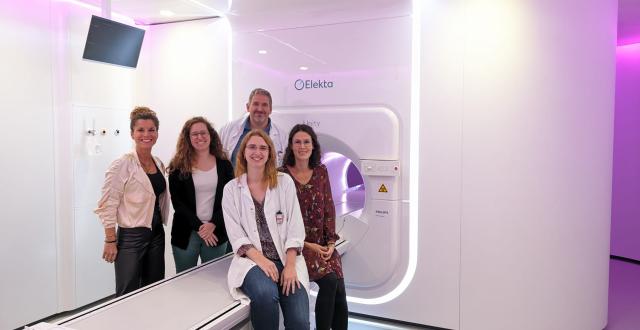EARLY PANC: for early detection and rapid treatment of pancreatic cancer
More than 1600 new cases of pancreatic cancer are recorded every year in Belgium. A cancer that has seen an increased incidence in recent years. The Brussels University Hospital (H.U.B) has therefore set up a fast track programme to screen and diagnose pancreatic cancer as early as possible, especially among risk patients. Patients are assured a cancer treatment, both surgical and with radiotherapy, using procedures at the forefront of innovations as part of a multidisciplinary approach.

A constant increase in cases
The incidence of pancreatic cancer has more than doubled in the past 15 years, according to the Cancer Register. The risk factors are closely connected to the contemporary Western lifestyle: obesity, a high fat diet, diabetes and above all smoking that remains a trigger element for many types of cancer. Hereditary factors can also be at the origin of pancreatic cancer, in an estimated 10%-15% of cases. At present the diagnosis of pancreatic cancer comes too late in the majority of cases. Warning signals can be difficult to detect and the disease can develop silently over many years. When the cancer is finally diagnosed it is often already at an advanced stage, too late for curative treatment. This is why the H.U.B has introduced a fast track programme for screening and diagnosis.
The fast track to treatment
It is essential to screen and diagnose this cancer as early as possible to improve the chances of a cure and survival. Early diagnosis would increase the option of surgery from 20% to 75% and thereby increase the 5-year survival rate. This is why experts at the H.U.B have introduced early screening for risk patients. Any patient who presents a clinical suspicion or an unexplained radiological anomaly will benefit from a fast track programme so that all the necessary examinations can be carried out and a treatment proposed in a minimum of time. This fast track speeds up the diagnosis and ensures that the cancer is treated as quickly as possible.
Leading edge treatment
If the tumour is detected in time and is resectable, surgery is the conventional treatment proposed. This involves removing the pancreas zone affected by the tumour. The H.U.B is one of the top 4 Belgian centres for pancreatic cancer surgery, and the number one in French-speaking Belgium. However, if the tumour has significant contacts with nearby major blood vessels, surgery alone is not recommended. In this case, chemotherapy and radiotherapy are proposed initially, to increase the chances of subsequent surgery that aims to cure. Thanks to innovative radiotherapy techniques, patients benefit from treatment reduced to just 5 sessions, known as high dose stereotaxic radiotherapy, for more effective tumour control with fewer side effects. In addition, with the aid of the MRI-LinacUnity®, recently installed and the only one of its kind in Belgium, it is now possible to offer all our patients highly personalised and precise radiotherapy treatment, adapted to the anatomy at the time.
A multidisciplinary team for better care
Care is increasingly patient-centred. The care pathway is personalised according to the patient’s needs, thanks to a multidisciplinary team. A series of professionals, each one an expert in his or her discipline, gravitate around the patient to provide the best possible follow up. They include surgeons, radiation oncologists and oncologists as well as psychologists, physiotherapists, nurses and dieticians. It is the combination of all these disciplines at the patient’s bedside that guarantees optimal care and the best chances of survival. Research is also a priority; research that is essential for progress in the face of this aggressive cancer.
